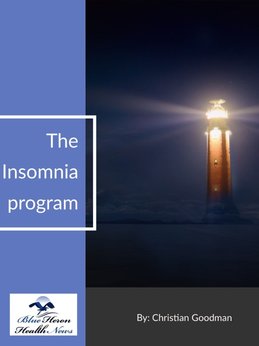
The Insomnia Program™ By Christian Goodman This program has been created by Christian Goodman, a natural health expert and sufferer of insomnia. He has used an audio program to let your fall sleep with the help of a bit of a hypnotic effect on your body.
How does insomnia affect sleep quality?
How Insomnia Affects Sleep Quality
Insomnia profoundly affects sleep quality, which is essential for overall health and well-being. Here’s a detailed look at how insomnia impacts various aspects of sleep quality:
1. Difficulty Falling Asleep (Sleep Latency)
Impact:
- Insomnia often causes prolonged sleep latency, meaning it takes a longer time to fall asleep once in bed. This delay can range from 30 minutes to several hours, leading to frustration and anxiety about not being able to sleep.
Consequences:
- Increased anxiety and stress due to the inability to fall asleep.
- Reduced total sleep time, which can result in sleep deprivation.
2. Frequent Nighttime Awakenings
Impact:
- Individuals with insomnia frequently wake up during the night and have difficulty returning to sleep. These interruptions fragment the sleep cycle, preventing the person from achieving continuous, restorative sleep.
Consequences:
- Fragmented sleep leads to reduced time spent in deeper stages of sleep, such as slow-wave sleep (SWS) and REM sleep, which are crucial for physical and mental restoration.
- Increased fatigue and irritability during the day due to poor-quality sleep.
3. Early Morning Awakenings
Impact:
- Insomnia can cause individuals to wake up much earlier than desired and be unable to go back to sleep. This reduces overall sleep duration and disrupts the natural sleep cycle.
Consequences:
- Shortened sleep duration can lead to sleep deprivation and its associated symptoms, such as cognitive impairment, mood swings, and decreased productivity.
- Early awakenings often contribute to a feeling of unrefreshing sleep and overall dissatisfaction with sleep quality.
4. Non-Restorative Sleep
Impact:
- Even when individuals with insomnia manage to get a full night’s sleep, they often report feeling unrefreshed and not well-rested. This is because insomnia affects the quality of sleep cycles, particularly the depth and restorative nature of sleep.
Consequences:
- Daytime sleepiness and fatigue, despite seemingly adequate sleep duration.
- Impaired cognitive function, including difficulties with concentration, memory, and decision-making.
5. Altered Sleep Architecture
Impact:
- Insomnia can disrupt the normal progression of sleep stages. People with insomnia may spend less time in deep sleep (SWS) and REM sleep, both of which are vital for physical and mental health.
Consequences:
- Reduced time in deep sleep affects physical restoration, muscle repair, and immune function.
- Decreased REM sleep can impair emotional regulation, memory consolidation, and learning processes.
6. Psychological and Physical Effects
Impact:
- The chronic sleep deprivation caused by insomnia has extensive psychological and physical repercussions. Anxiety and depression are both causes and consequences of insomnia, creating a vicious cycle.
Consequences:
- Chronic insomnia can lead to the development or exacerbation of mental health conditions, such as anxiety disorders and depression.
- Physical health is also compromised, with increased risks of cardiovascular diseases, obesity, diabetes, and weakened immune response.
Conclusion
Insomnia significantly deteriorates sleep quality by affecting sleep latency, continuity, depth, and the overall restorative nature of sleep. The cumulative effects of poor sleep quality due to insomnia can lead to severe physical and psychological health issues. Understanding these impacts can help in seeking appropriate treatment and interventions to improve sleep quality and overall well-being.
References
- National Institutes of Health (NIH): Insomnia
- National Sleep Foundation: What Is Insomnia?
- American Academy of Sleep Medicine: Insomnia Overview
- Harvard Medical School: The Impact of Sleep Deprivation on Physical and Mental Health

The Insomnia Program™ By Christian Goodman This program has been created by Christian Goodman, a natural health expert and sufferer of insomnia. He has used an audio program to let your fall sleep with the help of a bit of a hypnotic effect on your body.